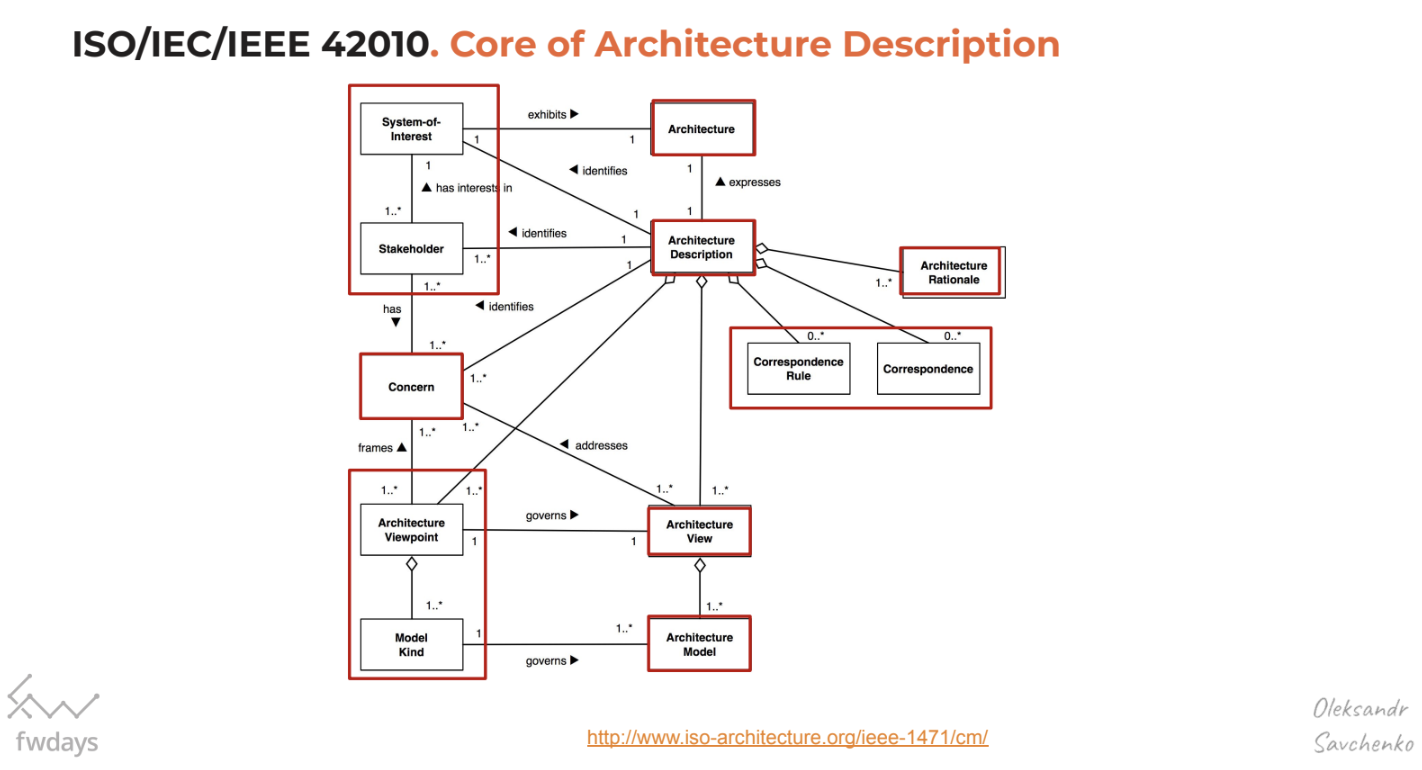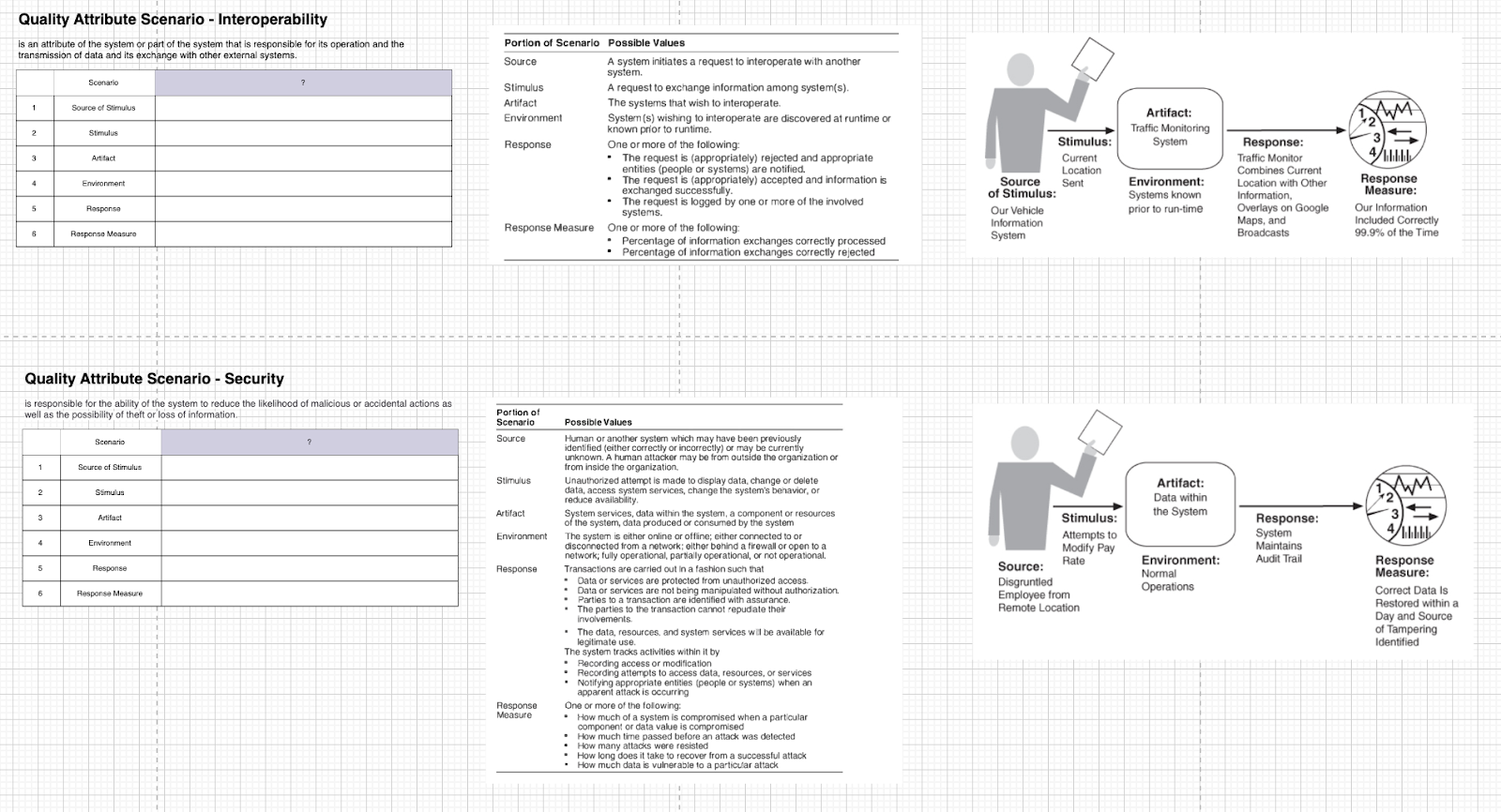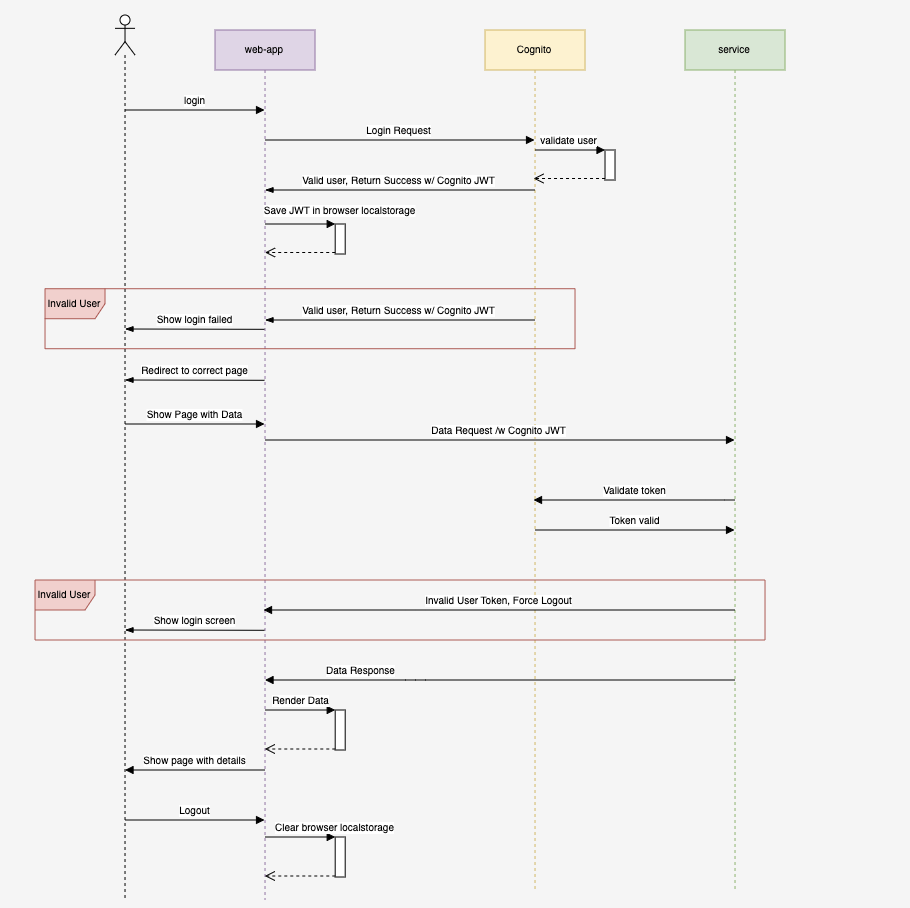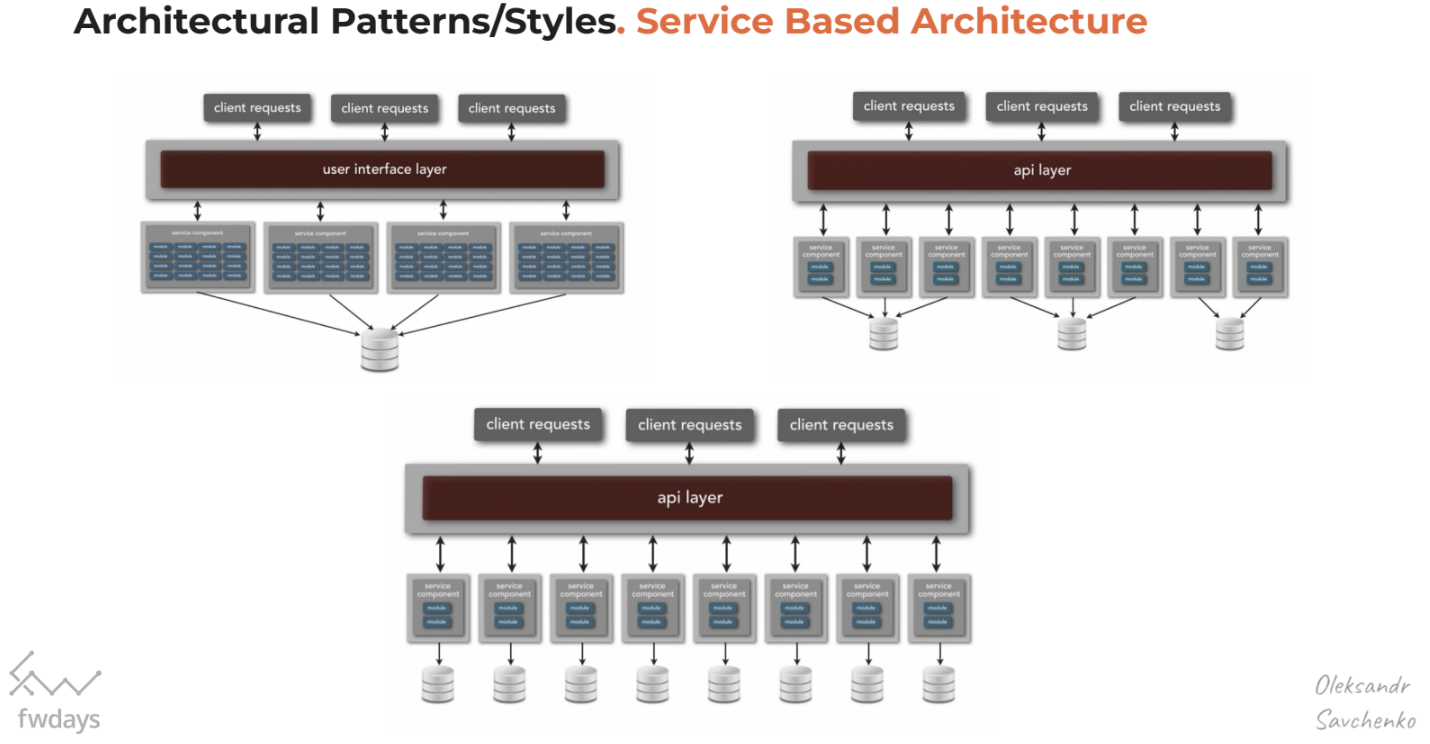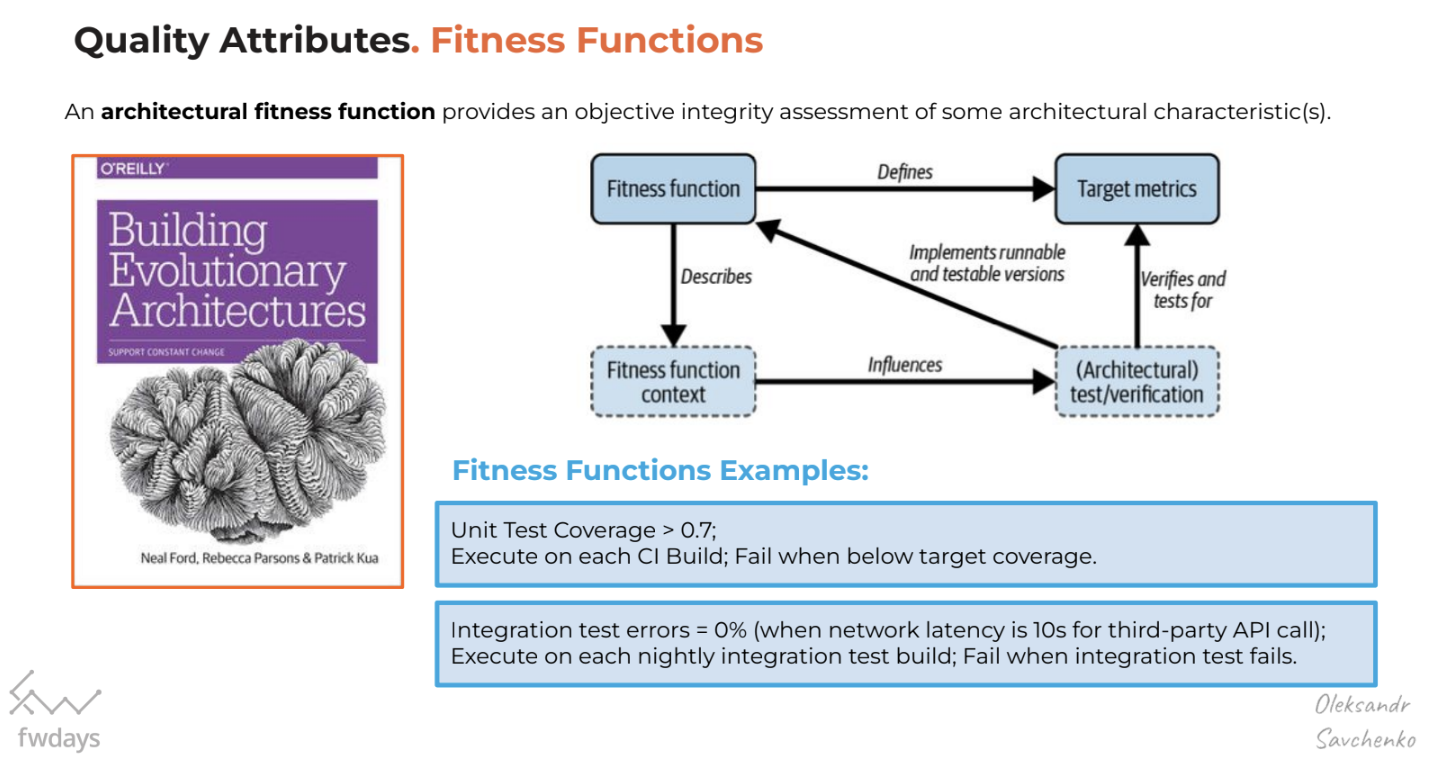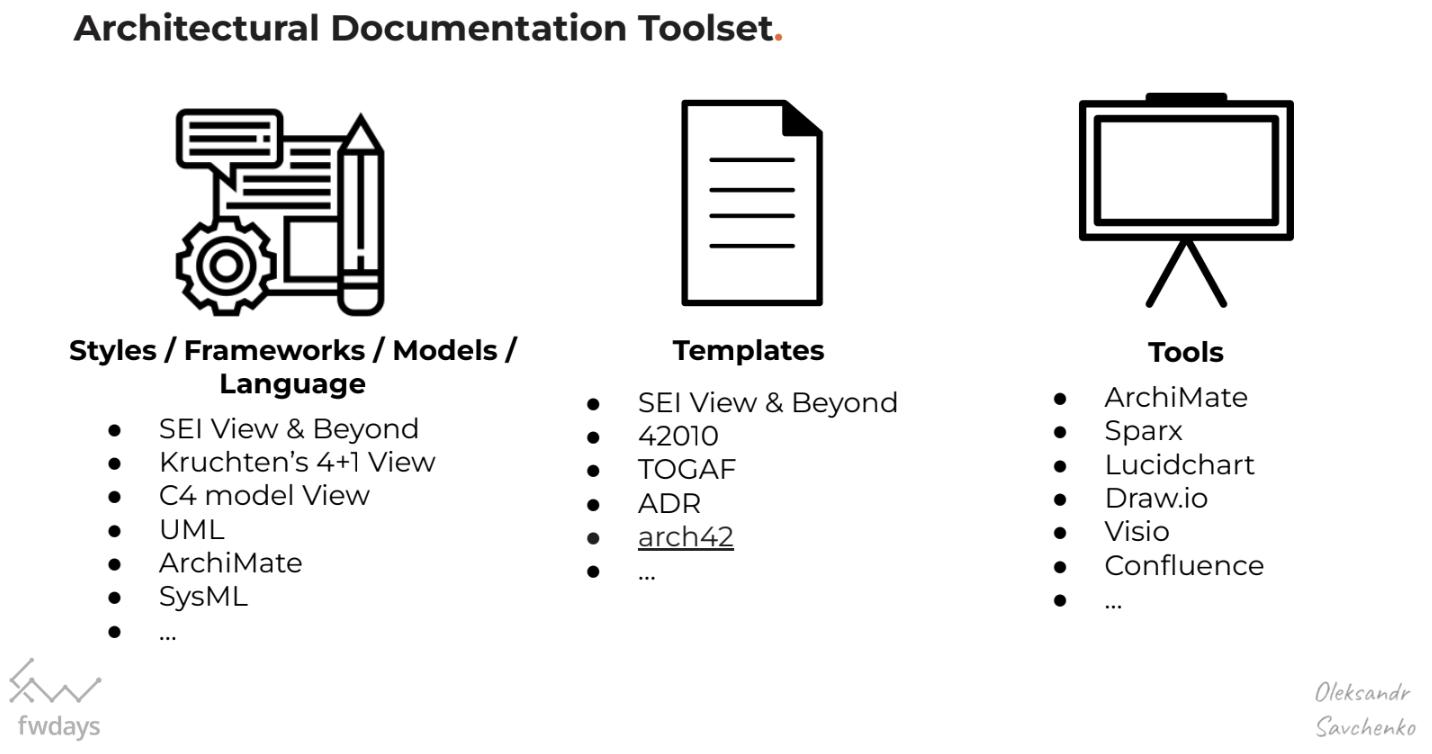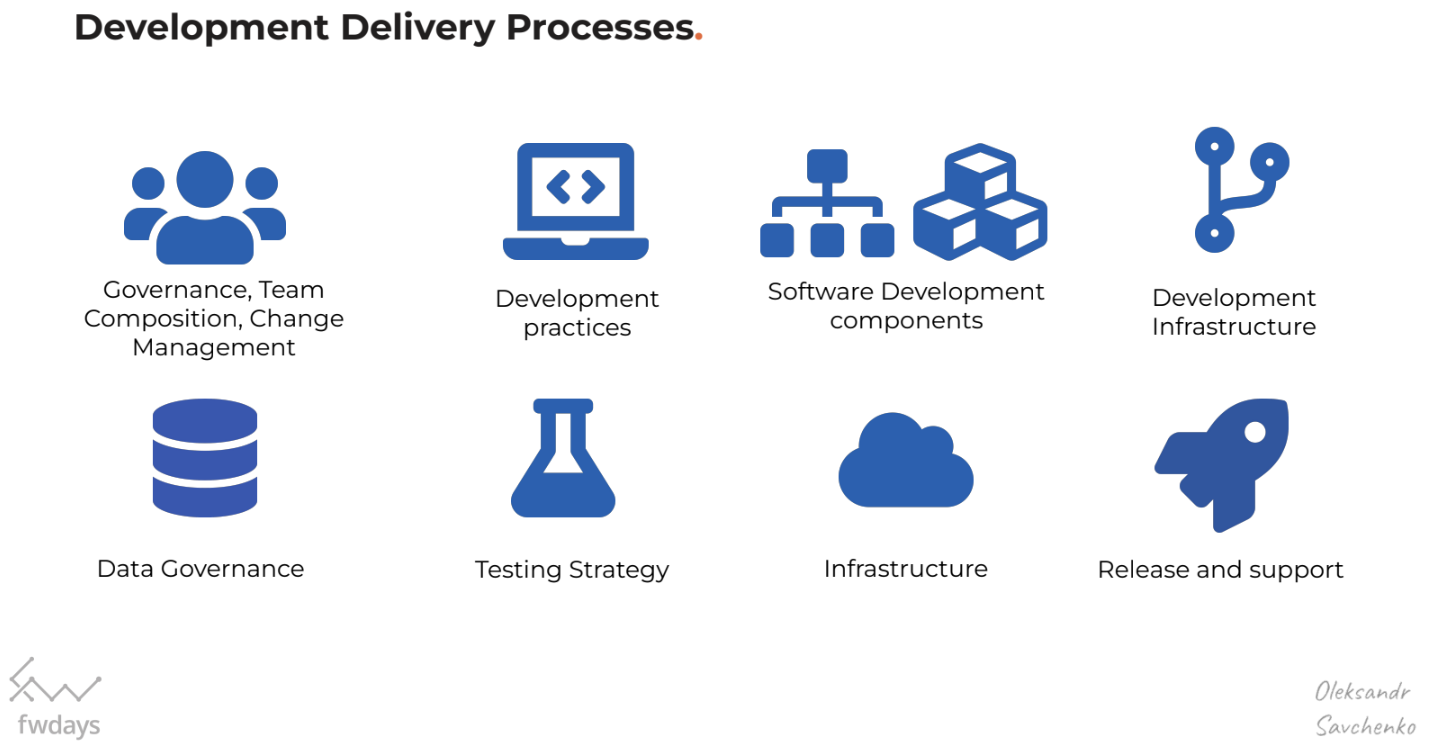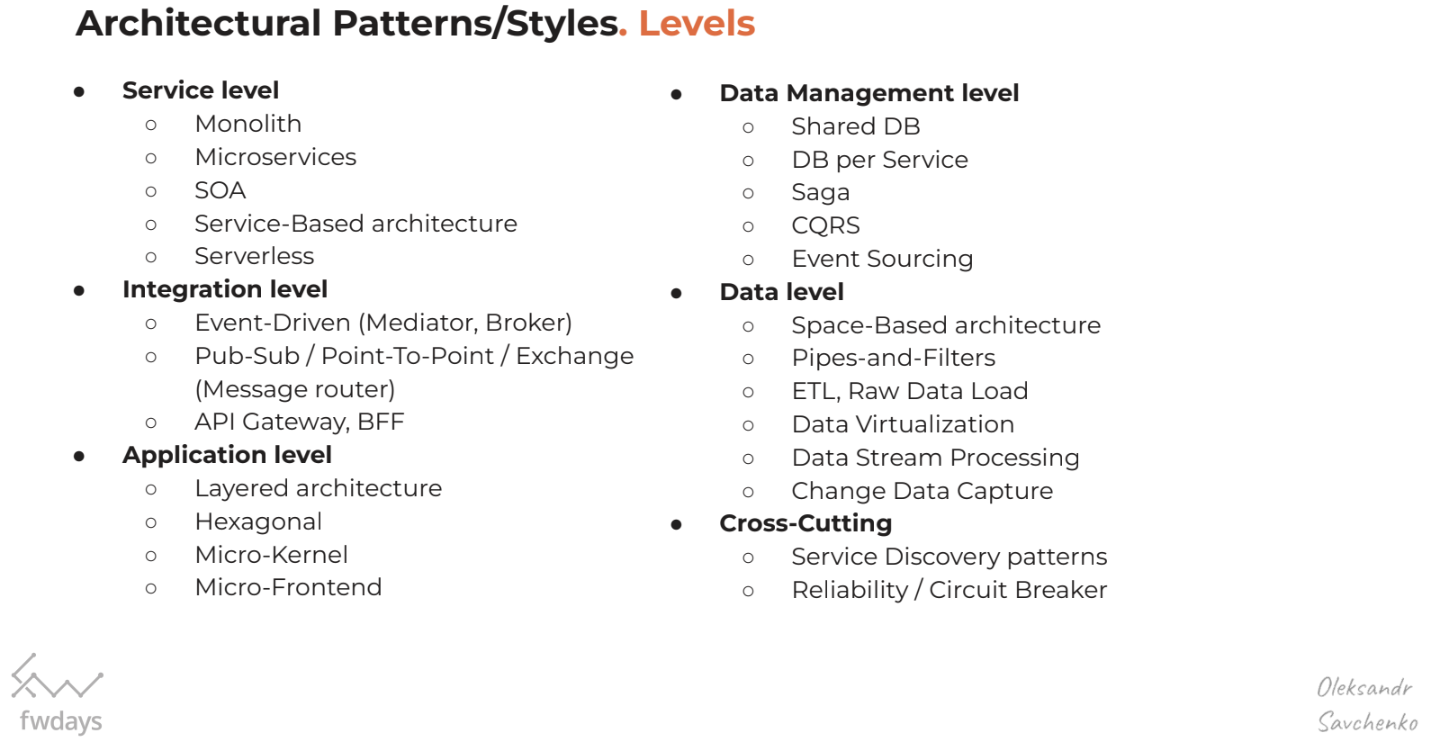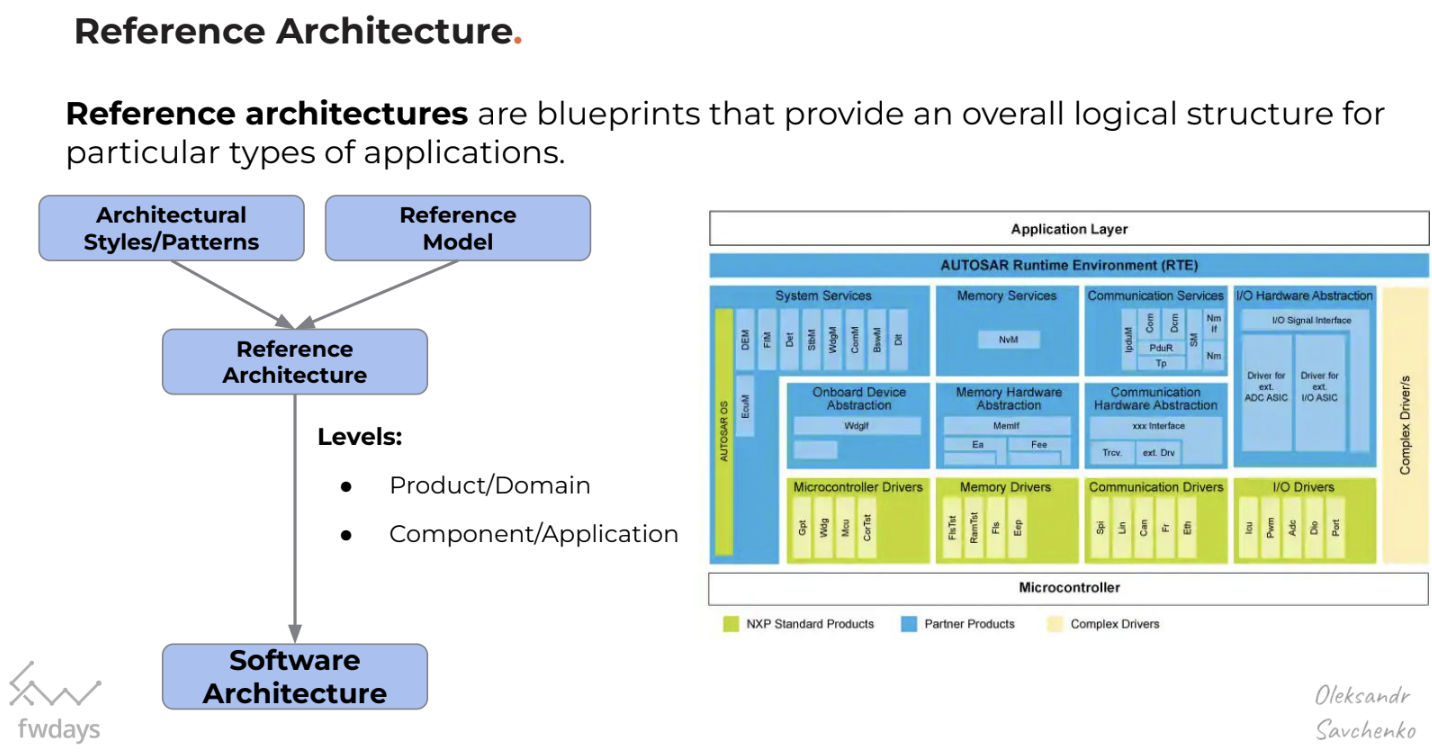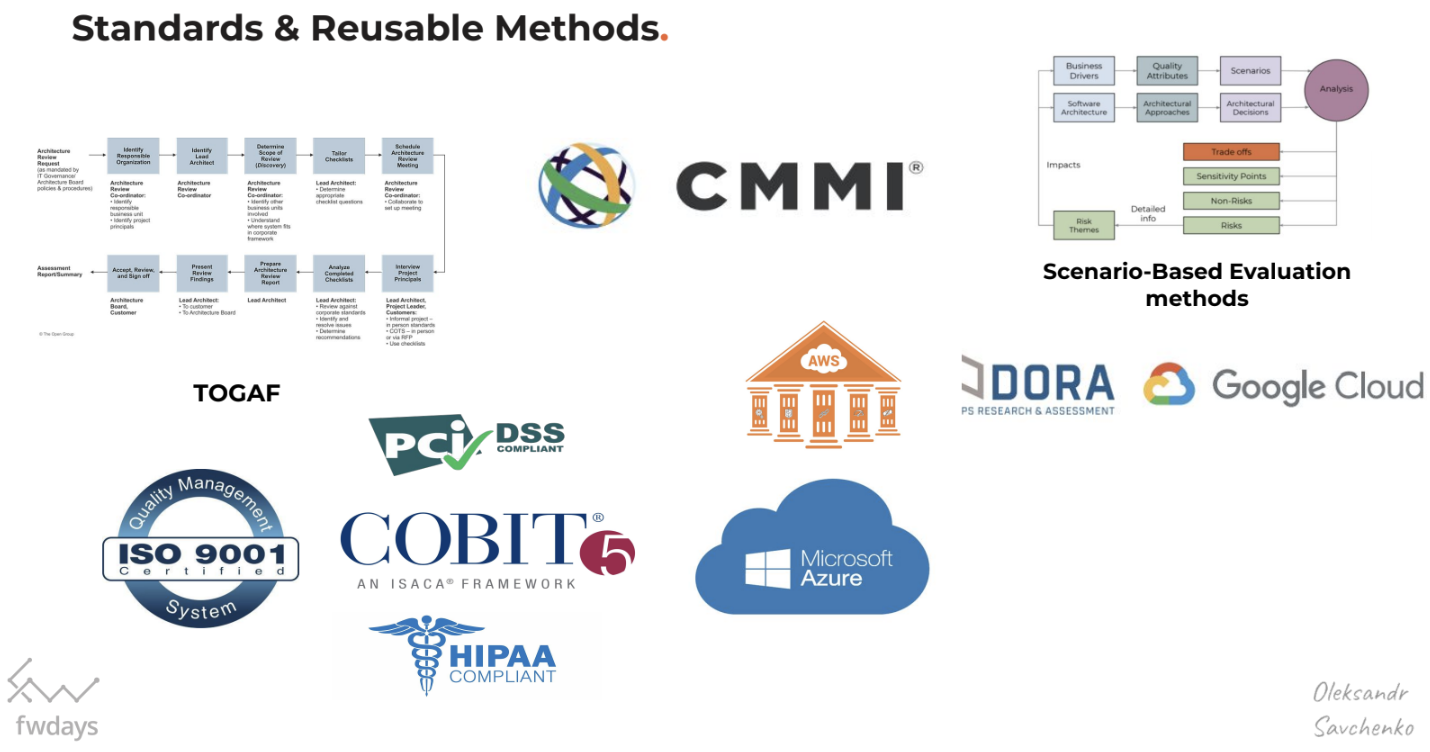Video Course: Software Architecture Design process

Common Information
If you have ever asked yourself the following questions in your life:
- What will be my role and what will be expected of me as an Architect?
- Why should we create architecture for a product if we can go to code right away?
- How to start developing architecture, what standards, methods and practices exist?
- What should be included in the architectural documentation?
- How to properly justify my chosen components, technologies and approaches?
In the course you will be able to gain knowledge in the field of software architecture development; structure the already acquired knowledge; see where architecture begins, what approaches, standards and practices exist; gain practical skills from defining business goals of products and architectural drivers to developing architecture and architectural documentation.
The video course is based on the materials of Oleksandr Savchenko's workshop Software Architecture Design Process Participants worked as one software architecture team, which went through all stages of architecture development from start to finish.
Target Audience:
This workshop is for:
- software developers who want to understand process of software architecture design, methods and principles;
- architects who want to find new approaches and structure their knowledge;
- Business and system analytics;
- DevOps;
- Delivery Managers;
- anyone who wants to know what software architecture development is.
Required knowledges:
- Experience with software development and software delivery.
- Knowledge of Software Delivery Lifecycle (SDLC).
- Basic knowledge of architectural patterns and styles (e.g. microservices, SOA).
- Basic knowledge of architectural viewpoints (e.g. UML, C4, SEI V&B, etc.)
- Engineering English (all materials and templates are in English).
Format:
All materials and videos of the course are located on the Podia platform. After buying a ticket, you get access to the course at the email address specified during registration. The price includes:
- Live Q&A sessions with Oleksandr Savchenko
- 18 hours of videos from the workshop (theoretical and practical parts), with overview of large number of different architectural approaches and methods,
- Pdf presentations of theoretical parts,
- Architectural Kata overview, 2 draw.io complex whiteboards and various templates in .xlsx and .doc format for architecture development,
- Completed templates as examples of architecture development and additional examples of architectural documents.
Language of the workshop: Ukrainian
All materials, presentations and templates are provided in English.
Throughout the course, we will use an example (Architectural Kata) of developing an e-commerce product/marketplace architecture. Participants worked as a single software architecture team that went through the stages of software architecture development from start to finish.
You will consider:
- different methodologies for gathering architectural requirements: how to identify stakeholders and what questions to ask them, how to analyze the information received
- choice of different architectural design concepts: reference architectures, deployment patterns, architectural styles and patterns, architectural tactics
- creation of architectural documentation description: how to evaluate the finished architecture
- what the architect needs to do before and during the implementation of the architecture by the development team.
Program
Chapter 1 (duration: ~4h)
- Workshop Introduction
- Theoretical Section - Software Architecture Fundamentals
- What is Software Architecture and why is it important?
- Architect’s types of engagement, roles and responsibilities.
- System and Software Engineering - Architecture description - ISO/IEC/IEEE 42010.
- Architecture Development Lifecycle.
- Architecture Discovery.
- Architecture Significant Requirements overview.
- Q&A session.
- Architecture in practice (Architectural Kata overview).
- Practical Section - Architectural Significant Requirements clarification:
- Common goal: to define common architectural drivers for software architecture design (e.g. Stakeholders overview, Business Goals, Architectural Constraints, Architectural Concerns).
- Exercises:
- Stakeholder register;
- Questions for clarification;
- Architectural Vocabulary.
Chapter 2 (duration: ~4h)
- Theoretical Section - Architectural Requirements Analysis and Preparation before Design:
- Architectural Significant Requirements analysis.
- Quality Attributes overview and process of scenarios defining and prioritisation.
- From Requirements to Decisions (preparation before Architectural Design):
- Choice of methodologies.
- Architectural roadmap.
- Preparation of architectural principles.
- Architecture frameworks & reusable methods:
- Trade Offs.
- Hypothesis Driven-Development.
- Component-Based Architecture (CBA).
- ADD.
- Microsoft Application Architecture Guide.
- TOGAF.
- Q&A session.
- Practical Section - Architectural Drivers analysis:
- Common goal: to understand the process of information analysis during architecture discovery, final deliverables after this phase and preparation before design.
- Exercises:
- Architectural Objectives;
- Constraints & Concerns;
- Risks & Assumptions Register;
- Quality Attribute Scenarios.
- Common goal: to understand the process of information analysis during architecture discovery, final deliverables after this phase and preparation before design.
Chapter 3 (duration: ~6h)
- Theoretical Section - Architectural Design:
- Architectural Design concepts.
- Reference Architectures.
- Deployment Patterns.
- Architecture Patterns/Styles.
- Architecture Tactics.
- Q&A session.
- Theoretical Section - Architectural Documentation:
- Architecture Documentation fundamentals.
- UML.
- C4 model.
- SEI Views & Beyond.
- Kruchten’s 4+1 View Model.
- ADR’s.
- Architecture documents templates.
- Q&A session.
- Practical Section - Architectural Design and Views creation:
- Common goals: to create common architectural decisions (choosing reference architectures, deployment patterns, architectural patterns, architectural tactics, mapping decisions to ASR’s), creation of common diagrams (e.g. component diagram, deployment, sequence, ERD, etc.), get acquainted with the structure of architectural documentation and view templates.
- Exercises:
- Types of components;
- Reference Architectures;
- Distributed Deployment patterns;
- Architectural styles/patterns;
- Technologies stack;
- Architectural Decision Record;
- Experiment overview.
Chapter 4 (duration: ~4h)
- Theoretical Section - Architectural Implementation:
- Architectural Implementation process.
- Architectural governance and change management.
- Scope and Estimation.
- Delivery Approach and Team composition.
- Setting up software development processes.
- Test Strategy.
- Data Governance.
- DevOps/SRE cultures & Release Management.
- Theoretical Section - Architectural Evaluation:
- Architectural evaluation fundamentals.
- Architectural evaluation process:
- Phase 1 - Preparation
- Phase 2 - Assessment
- Phase 3 - Analysis & Results
- Capability Maturity Model Integration (CMMI).
- TOGAF Architecture Compliance Review.
- Scenario-Based Evaluation methods
- Summary - What we learned.
- Architectural skills and learning materials:
- Architect’s skill set & toolset.
- Resources for practice.
- Learning materials.
- Q&A session.

